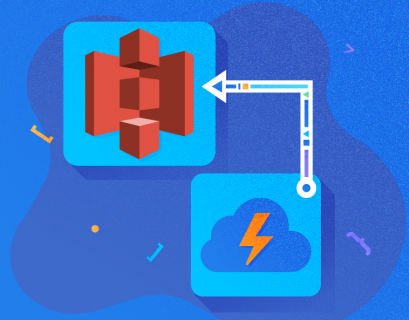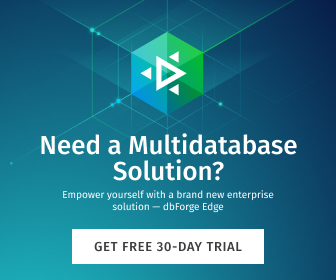Have you heard the term cloud computing? Do you wish to try your hands on cloud platforms? Well, if you seem to be a newbie to this new world of cloud computing, then set back as we are going to discuss the cloud platforms that are beneficial for generating more business. It’s vital for an individual to get themselves familiarize with different leading cloud service providers before selecting the best cloud network to begin their business or career with cloud computing.
We’ve surpassed the traditional days which had conventional storage solutions where all the physical storage devices used to drive the technologies across the globe. Currently, data storage is very important for every business enterprise and henceforth users are constantly worried about the safety and security of storing their crucial data at a safe place.
With the digital revolution, organizations had to shift from traditional storage devices to more advanced and efficient cloud storage solutions. Doing so, they set themselves free from the constant stress of losing crucial data. So, you may wonder who manages the cloud systems. In this article, by cloud, we shall basically mean an off-site storage space that is managed by a third-party service provider to safeguard your data and can be easily accessed using the internet.
In short, the companies which provide the network services and infrastructure for the cloud are defined as the Cloud Service Providers (CSPs). The widely-used and major CSPs across the globe are Amazon and Microsoft. Let us begin with basic terms.
What is AWS (Amazon Web Services)?
As the name suggests, AWS is an on-demand cloud computing platform by Amazon. It’s been a leading platform on the computing market for years and Amazon still extends its public cloud market. The platform took an early leap in cloud computing and continues to serve the businesses as well as individuals with its unmatched services.
Back in the past, AWS used to offer cloud infrastructure solutions such as computing and storage services but with the rise of cloud technologies, Amazon launched its own cloud services in 2002 with a limited set of tools and services. The platform provides a combination of Infrastructure as a Service (IaaS), Software as a Service (SaaS), and Platform as a Service (PaaS) offerings and is aimed at providing an innovative production environment on a consistent basis.
What is Microsoft Azure?
We all are aware of the cloud solutions revolutionizing the whole digital ecosystem by providing better customer experience and higher mobile accessibility. The era of cloud computing is increasing at a faster pace and the way it is changing businesses depicts the growth of companies. While Microsoft has been at the center of the cloud solutions until now, Azure is a public cloud computing platform for Microsoft. Azure provides Infrastructure as a Service (IaaS) and Platform as a Service (PaaS) offerings; it was released in 2010 and now it’s dominating across 36 regions of the world as the major cloud service provider. The platform provides wide cloud services such as computing, data storage, web and mobile services, media and networking services, content delivery network, IoT and much more.
What’s the Difference between Azure and AWS?
We are going to compare both the platforms on the basis of some basic features. So, let’s start.
-
Application Deployment
Deploying an app is vital for all enterprises because it is a key approach for every business. Hence, cloud providers have advantages to deploy an app in a simple process.
Azure
Being a developer, you obviously wish to deploy your app on various virtual servers using PaaS features. Well, to fulfill this demand, Azure has got multiple app deployment tools like cloud services, function, batch, app services, container service and much more.
AWS
This platform offers deployment solutions that are similar to Elastic Beanstalk, Lambda, Batch, container service and much more but it does not offer multiple features on the app hosting side.
- Computing Process
We use computers when it comes to performing the calculation, processing and data computing for scaling up to thousands of processing nodes using cloud service providers as per the needs.
Azure
Azure makes use of virtual machines when dealing with computing processes. To scale the large extent it sets high scale on virtual machines for software management; it uses Container Service (AKS) and Container Registry for managing the Docker container registry.
AWS
This platform makes use of Elastic Compute Cloud (EC2) for scalable computing and managing the software container with Kubernetes or Docker.
-
Data Storage
Storing data is considered to be one of the main services for cloud providers.
Azure
The platform utilizes Storage Block blob for storing the data that is comprised of blocks and uploads large blobs easily. Also, it uses Storage archive and Storage cool for archiving data.
AWS
It uses Simple Storage Service (S3) for a longer run when compared to Azure and offers loads of documentation and tutorials, data archive, Archive storage by Glacier and S3 IA (Infrequent Access).
-
Database management
It is said that mostly all cloud providers have an ability to implement a database in both NoSQL and SQL solutions.
Azure
This platform makes use of SQL database, PostgreSQL, and MySQL for handing the relational databases, Redis Cache for caching purpose and Cosmos DB for NoSQL solutions.
AWS
The system utilizes RDS for using relational databases as a service, Dynamo DB for NoSQL and Elastic cache for caching purpose.
-
Hybrid Features
Every business today looks for user-friendly solutions that can possess hybrid capabilities to support their cloud solutions.
Azure
Azure is providing stronger support for hybrid cloud services with the platforms such as Hybrid SQL Server, Azure Stack, and Azure StorSimple in order to bring fully public Azure functionalities to your own premises data centers.
AWS
AWS launched Snowball Edge which is a 100 terabytes hard drive in order to move workloads between the client’s data centers and cloud.
-
Network Support
Basically, cloud providers are offering various partners and networks to interconnect with various data centers by using variant products.
Azure
It utilizes a virtual network for content delivery or networking and supports VPN gateway for cross-premised connectivity. The platform manages the load balancing during content delivery with a load balancer and application gateway.
AWS
This platform uses the virtual private cloud when it comes to networking and offers an API gateway for cross-premises connectivity. Furthermore, during networking, it makes use of Elastic load balancing for load balance.
-
Open Source Developers
Both of the cloud solutions do not rely on any specific terms and conditions and therefore people from any vertical with little to no technical knowledge can use these services.
Azure
Azure offers the facility to the enterprise users for making use of the current active directory account for signing on their cloud platform. It also runs the .NET framework on Windows, Linux, and MacOS.
AWS
It is an excellent platform for open source developers and also Linux server can be integrated with AWS.
-
Pricing Models and Support Plans
Pricing is one of the vital issues for every enterprise no matter the size.
Azure
The Azure pricing is based on the pay-as-you-go principle, as they charge per minute for their services and provide you an exact pricing model. You can also have a short-term commitment with Azure by choosing between the monthly or pre-paid charges.
AWS
AWS uses the similar pay-as-you-go principle but they charge per hour and you can purchase their services as per the offered models which are as given:
-
Reserved: Make a reservation for 1 to 3 years with the upfront cost based upon usage.
-
Spot: Bid for extra capacity.
-
On-demand: Pay for what you use without any extra costs.
Which One to Go for?
Both of the cloud platforms show equal potential and capabilities thereby making it tough to select the one. If you are thinking of Hybrid Cloud and integrating with Microsoft product stack then you can give a shot at Azure but at the same time, AWS is also flexible and can satisfy the requirements of your organization. Hence, choose wisely and till then – keep learning!
Tags: AWS, cloud computing, cloud platform, Microsoft Azure, web services Last modified: September 20, 2021






